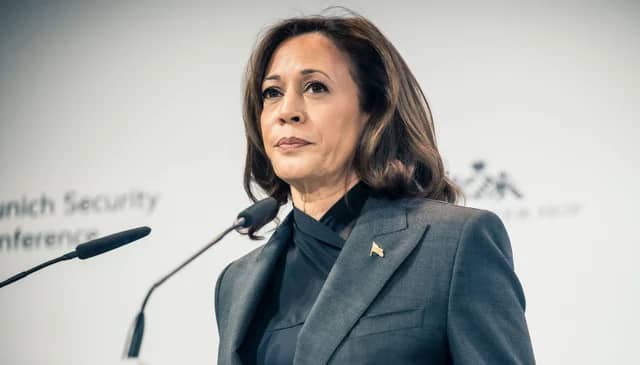By Burnett Munthali
Kamala Harris’s defeat in the 2024 U.S. presidential election, where she garnered 66,909,996 votes (47.5%) against Donald Trump’s 71,803,887 votes (51%), is a momentous political event that holds significant lessons, both for the United States and for governments worldwide. Had she won, Harris would have made history as the first woman to become U.S. president and the first African American to hold the office. Yet, her loss highlights critical dynamics that shaped the election and offers valuable insights into the forces influencing voter behavior, political campaigns, and governance today.
1) Economic Discontent and Voter Frustration
One of the most compelling reasons behind Kamala Harris’s defeat is the widespread economic dissatisfaction among American voters. Despite efforts from the Biden administration to stabilize the economy after the COVID-19 pandemic, inflation remained high, job growth was inconsistent, and housing and healthcare costs surged. These issues were especially pressing for working-class Americans, who found it increasingly difficult to make ends meet.
Donald Trump, in contrast, capitalized on this economic frustration by positioning himself as a businessman who would restore America’s economic might. His promises of tax cuts, deregulation, and job creation resonated with voters who believed that Harris, as Vice President under Biden, was unable to bring about significant change in their economic circumstances. Trump’s populist approach, focusing on reviving industries and protecting American jobs, appealed to those who felt left behind by the system.
Lesson to other governments: Economic policy is at the heart of electoral success. Governments must ensure that their economic strategies directly address the everyday challenges of their citizens, particularly those facing economic hardship. Without a strong, responsive economic plan, political leaders risk losing the trust of voters.
2) Polarization and the Struggle to Bridge Divides
The U.S. in 2024 was deeply polarized, and Harris struggled to transcend these divisions. While she was able to rally the progressive wing of the Democratic Party, her appeal to moderate, independent, and disaffected voters was weaker. Trump, who had cultivated a strong base of support among conservatives, particularly in rural areas, presented himself as the antidote to what he described as the “liberal elite” and “deep state” forces in Washington. His appeal to conservative values, nationalism, and populism resonated in key battleground states.
Harris, as Vice President under President Biden, became an easy target for attacks about the policies of the administration—many of which were seen as ineffective by a significant portion of the electorate. Her progressive stances, which were often seen as too liberal by centrist voters, alienated key demographics in swing states such as Michigan, Pennsylvania, and Wisconsin, where voters were looking for pragmatic solutions rather than ideological purity.
Lesson to other governments: In a deeply divided political environment, leaders must work to bridge the ideological gap and not alienate moderates. A leader who only appeals to one side of the political spectrum risks losing the crucial swing voters who decide elections. The ability to unite a fractured electorate is key to long-term political stability.
3) Identity Politics and Its Double-Edged Sword
Kamala Harris’s candidacy was historic on multiple fronts—she was the first woman of color to serve as Vice President, and if she had won, she would have been the first woman and the first African American president. These milestones energized a significant portion of the electorate, particularly among women and minority communities, and contributed to the historic nature of her candidacy. However, these same identity markers were used against her by some of her opponents.
Her race and gender became focal points for negative campaigning, with opponents questioning her qualifications and portraying her as unfit for the presidency. These criticisms were compounded by the fact that Harris, like many politicians, struggled to connect with some key voter groups within her own base, including African American voters in key states. Despite her cultural significance, some voters felt that she had not delivered on promises that would have directly benefited them.
Lesson to other governments: Identity politics can be a powerful tool for mobilizing certain groups, but it can also be polarizing if not balanced with a substantive policy agenda. Leaders must ensure that their identity resonates with voters beyond symbolism and is backed by meaningful actions and policies that benefit all segments of society.
4) Lack of a clear and compelling policy agenda
One of the main criticisms of Harris’s campaign was the lack of a clear, compelling, and distinctive policy agenda. Although Harris’s platform included progressive initiatives on healthcare, climate change, and social justice, her proposals were often vague and lacked the specificity required to convince skeptical voters. Many Americans were looking for a clear roadmap to address pressing issues such as inflation, healthcare affordability, and national security.
Trump, in contrast, presented a highly focused campaign with promises to reduce taxes, bring back jobs, and implement stricter immigration policies. His messaging was straightforward, which gave him a clear edge in an election where many voters were seeking stability and clarity.
Lesson to other governments: Political leaders must offer clear, actionable policies that address the most pressing concerns of voters. Vague promises and lofty goals can be easily dismissed if they lack practical application. A well-defined policy agenda is essential for electoral success.
5) Trump’s strategic campaign and media savvy
Despite facing legal challenges and widespread criticism, Donald Trump proved to be a master of media strategy. His ability to dominate news cycles and control the narrative made it difficult for Harris to gain traction. Trump’s use of social media, rallies, and targeted ads allowed him to connect directly with his supporters, maintaining their enthusiasm and loyalty. Harris, meanwhile, struggled to respond effectively to Trump’s attacks and often found herself reacting rather than proactively shaping the conversation.
Trump’s ability to make bold, populist statements ensured that he remained at the center of public discourse throughout the election. In contrast, Harris’s campaign sometimes lacked the same energy and media momentum, which resulted in her message being overshadowed by Trump’s.
Lesson to other governments: Control of the media narrative is crucial in modern political campaigns. A political leader must be able to communicate effectively with the public and manage their image, particularly in the face of constant media scrutiny. An unresponsive campaign risks losing public attention to adversaries.
Conclusion: Lessons for global governments
Kamala Harris’s defeat in the 2024 presidential election offers a wealth of lessons for political leaders worldwide. At the core, the election highlights the importance of addressing economic frustrations, uniting a polarized electorate, and presenting a clear, actionable policy agenda. It also underscores the need for leaders to navigate the complexities of identity politics, ensuring that they remain relevant to all voter groups.
Moreover, Harris’s loss serves as a reminder that campaigns are as much about perception and media strategy as they are about policy. Effective communication and the ability to command attention in a crowded media environment are crucial in modern politics.
For other governments around the world, Harris’s experience in 2024 illustrates that achieving political victory requires more than just historical firsts. It demands tangible, effective governance that resonates with the needs and desires of the electorate, as well as a campaign strategy that can navigate the complexities of a diverse, often divided, society.




